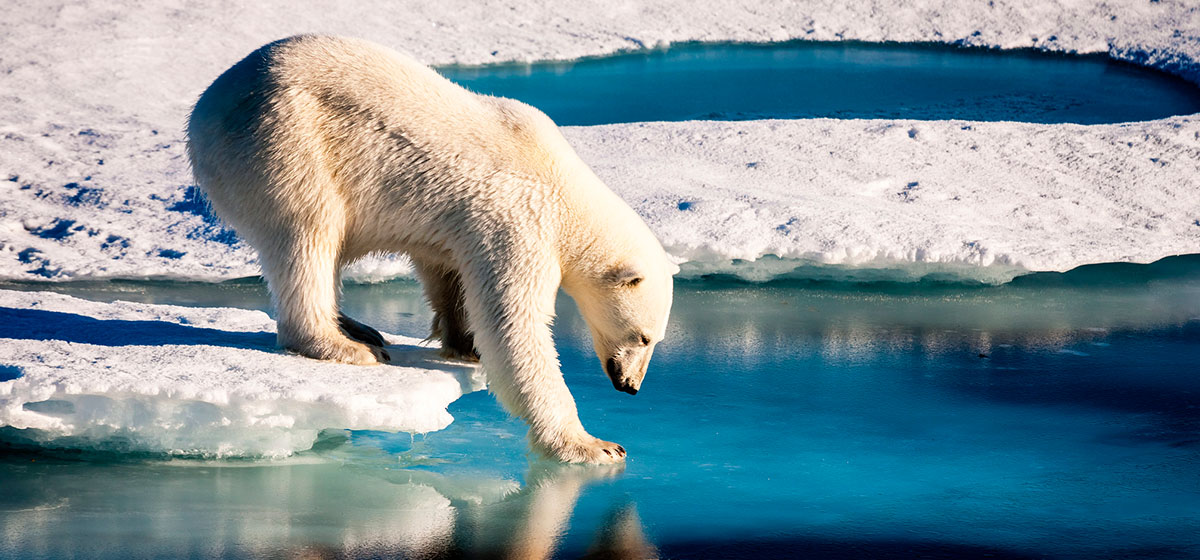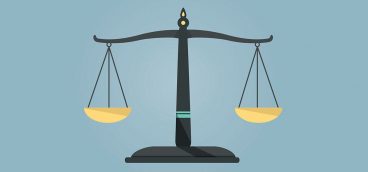Race, Global Warming and the Experts

Last week we considered the possibility that, precisely to the extent that human equality is the most important issue facing the world, to that extent liberal democracy can claim little legitimacy.
It is certainly true that liberal democracies have produced greater equality and have more successfully combated racism, sexism and other forms of bigotry than any other known form of government. But, Winston Churchill notwithstanding, simply being the best of a bunch of bad apples isn’t a particularly strong claim to legitimacy.
African Americans and women, among others, have so far waited more than two centuries for full equality. Should they wait two more centuries? If the answer is “no,” we may need to find an alternative to liberal democracy.
And that may not be liberal democracy’s only fatal defect. Many people would argue that, appalling as continued discrimination against specific groups of people may be, the most critical issue facing humankind today is climate change.
If liberal democracy is to have a claim to being a legitimate form of government, surely it should be able to address effectively a mortal threat to the continued existence of the species. And yet, despite a lot of Politically Correct posturing, the world’s liberal democracies have done a pathetic job of dealing with the threat of climate change.
Why is liberal democracy, which performed so brilliantly for two centuries, suddenly fumbling the ball? One possibility is that liberal democracies around the world have finally wrecked against the shoals of human nature.
Consider the distinct possibility that racism is inherent in the simple fact of being human. Humans lived in dangerous hunter-gatherer societies for hundreds of thousands of years, and during those eons our brains evolved to favor people like us and to fear people who were different. It was a simple matter of survival.
In America, we tend to think of racism as something that afflicts the white population. But African Americans are racists, too, as is every other human population ever studied. Liberal democracy is, by definition, government by the people. If those people are congenitally racist, then liberal democracies are very poor vehicles for dealing with human inequality.
Human nature also interferes with the fight against climate change—and, for that matter, many other urgent-but-complex issues facing contemporary societies. Very few voters in liberal democracies can look around themselves and be convinced that climate change is an urgent issue. In most parts of the United States, in fact, warming climates have been a significant positive.
Only climatologists and other scientists can understand the true danger of climate change, but those people control a trivial number of votes. Instead, they have to depend on their ability to convince skeptical voters that climate change is an urgent matter.
To some extent the experts have made progress; polls show that pluralities of the American public and majorities of most other liberal democracies agree that climate change is real. But almost nowhere do voters think the issue is serious enough to justify (for example) putting millions of people out of work, drastically reducing living standards, and so on.
Consider that even in France, which has been a leader in the fight against climate change, citizens haven’t been willing to sacrifice to fix the problem. In 2018 a modest increase in fuel taxes, designed to reduce the use of internal combustion engines, resulted in a powerful uprising by the “Yellow Vest” movement that shut the country down for weeks and caused the French government to back off.
At the end of the day, it is ordinary people in liberal democracies who control policy, and those voters typically can’t understand complex issues like climate change. Worse, they are often skeptical—sometimes for very good reasons—of experts and expert opinion.
I’ve written elsewhere in these pages about the lousy track record of experts and the resulting skepticism of them that has resulted (here). We may, right now, be living through another period when experts have mostly disgraced themselves, deepening public suspicion.
Across America and much of the world, the response to the coronavirus emergency has largely followed the advice of medical professionals, especially epidemiologists. That advice—total and long-term lockdowns—has devastated the world’s economies, cost millions of working people their livelihoods, and disrupted the lives of literally billions of people. Soon enough it will lead to mass starvation in the developing world.
Yet many—perhaps most—of the projections made by the experts have proven to be embarrassingly wrong. Consider the infamous Imperial College projection of 2.5 million American deaths, an estimate so preposterous that the lead author of the study had to walk it back a mere week after it was published.
Or consider Los Angeles County’s insistence that 70 percent of the county’s residents would soon be infected with the virus. At the time that statement was released, the infection rate in LA County was 0.017 percent. Officials have refused to divulge how they came up with such a silly prediction, which was obviously designed to terrify the public.
And speaking of terrifying the public without facts, what about epidemiologist Rick Bright’s statement that “2020 will be the darkest winter in modern history,” which showed up on the front page of every newspaper in the country.
Maybe worst of all, medical scientists seem congenitally incapable of understanding the devastation lockdowns are causing to ordinary working people, perhaps because every medical scientist is a highly educated member of the upper middle class elite. A recent University of Chicago paper pointed out that 35 percent of the poorest workers have lost their jobs as a result of the lockdown, versus 9 percent of more affluent workers.
Yes, science is hard, but the trumpeting of shamefully inaccurate projections by medical scientists and the media have, once again, undercut the authority of experts. And, in the meantime, expert opinion on climate change, foreign policy, species loss, and many other issues will continue to be mostly ignored.
If modern life has become so complicated that only experts can safely be relied upon, and if ordinary voters refuse to listen to expert advice, what possible use are liberal democracies? We may need something better.
What might that be? We’ll need to begin a new series to speculate about it, but it might be fun.





